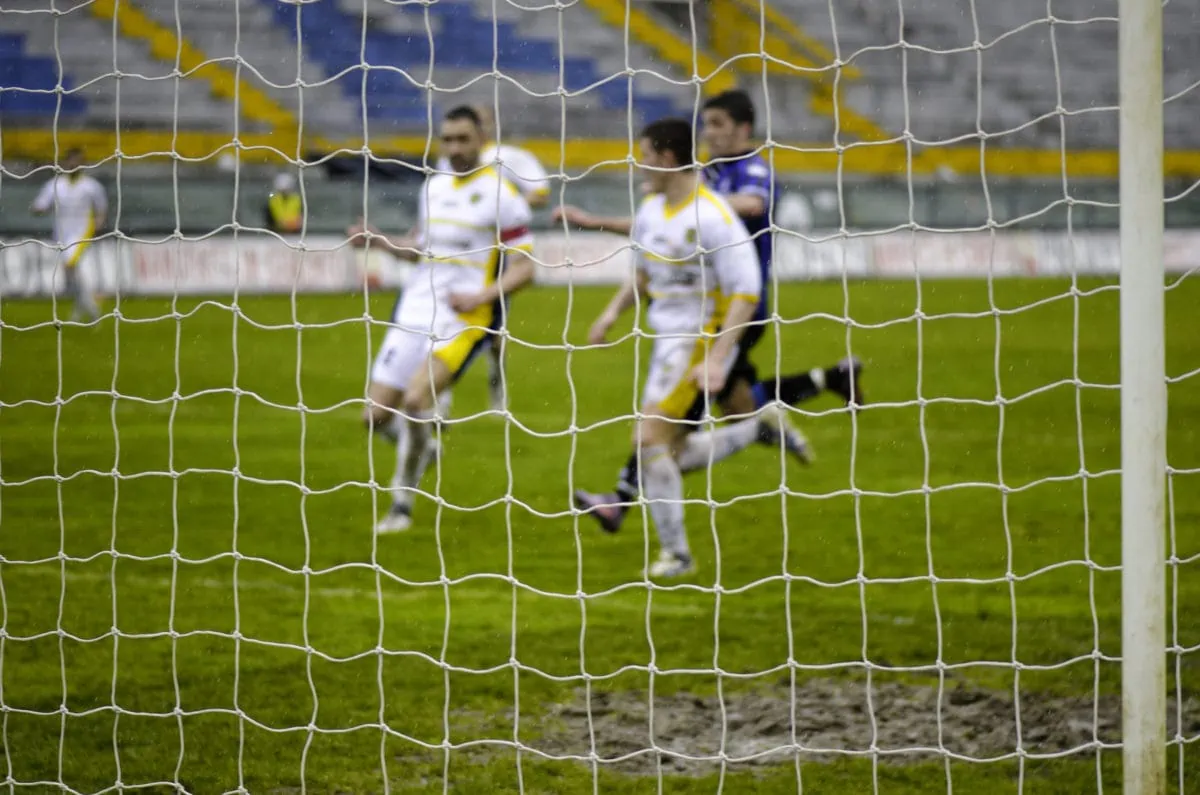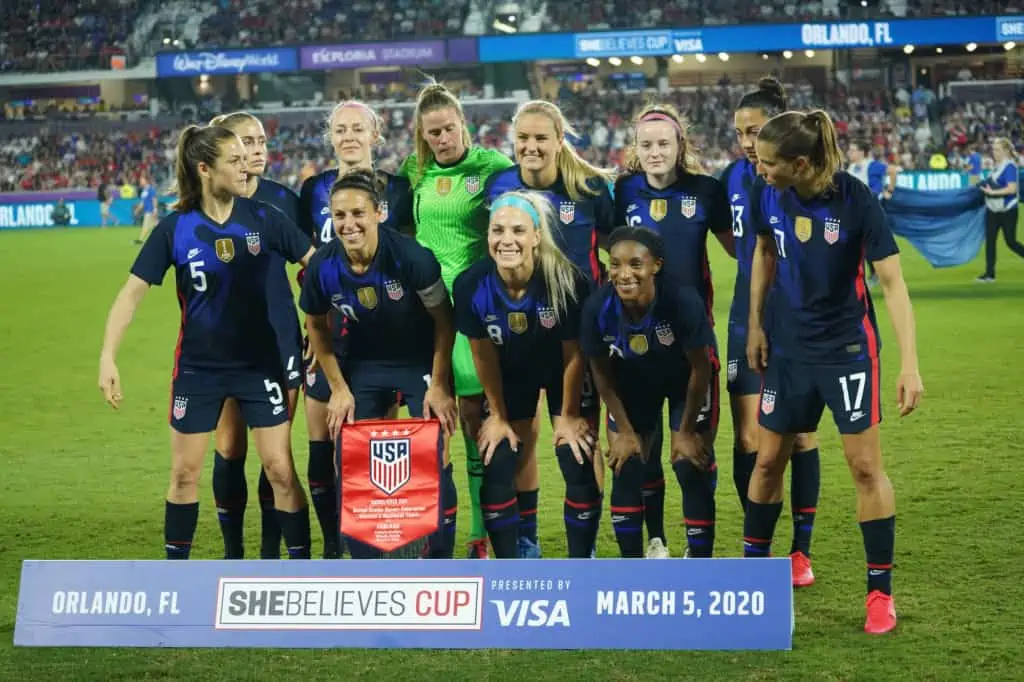Share the post "Can D3 Soccer Players Go Pro? (Guide to The Top!)"
Since middle school, I was certain I wanted to play college soccer. Furthermore, I was dead set on playing D1 soccer in a power-five conference. While I did accomplish this goal, I’ve gained a lot of valuable insight about college soccer and the different options from the coaching clubs and D3 soccer.
There are many misconceptions about D3 soccer, including the notion that it is impossible to go pro from D3. While most professional soccer players from the U.S. played D1 soccer, it is possible to go pro after playing in other divisions, including D3.
Playing D1 soccer does not guarantee that you can play professionally. Likewise, playing D3 does not make it impossible to go pro. Many factors contribute to why players play in different divisions and what makes a successful professional player.

How good do you have to be to play men’s D3 soccer?
There are many quality male players at the D3 level. For the 2019/2020 season, 25,459 male players were playing NCAA college soccer (12,711 for D3). On the other hand, 459,077 boys participated in high school soccer during the 2018/2019 season.
This means that only 5.5% of boys who played high school soccer went on to play college at any NCAA level. Based on the information above, it is clear that playing at any NCAA level is an impressive feat.
How Good do you have to be to play D3 women’s soccer?
During the 2018/2019 high school soccer season, 394,105 girls played varsity soccer. Fast forward to the 2019/2020 college soccer season, and there were 28,387 total female players in NCAA women’s soccer (11,332 for D3).
This means that only around 7.2% of girls who play high school soccer will go on to play NCAA at any level. Arguably, you must be a good player to play NCAA soccer at all, including D3.

Why do players choose D3?
The division an athlete plays at does not solely indicate their talent. While players are more likely to play professionally out of D1, it can be done out of any level.
At the D3 level (for men and women), you will find a wide range of abilities, including many talented players. This leaves some people wondering why players choose D3. Here are some common reasons:
- To get a specialized education. Many D3 schools have strong academic programs and may allow direct admission into nursing, engineering, or other specialized areas of study.
- Desire to stay close to home. Staying close to home may allow a student-athlete to commute from home, visit family more often, or feel more comfortable. Not all D3 players stay close to home, but it’s more feasible to be close to home when considering D3 options.
- Academic scholarship. Some student-athletes will go where they receive a substantial academic scholarship.
- Less desire to go pro. Going pro from D3 is possible and has happened, but it’s rare. Players without a strong desire to go pro may be more willing to consider D3 schools.
- Playing time. Some players opt to play D3 at a program they know they will get playing time in rather than struggle to earn minutes at D1.

Can you go from D3 to D1?
D3 does not mean less talented. There is a wide range of talent for men’s D3 soccer, and some of the best talents can compete with D2 or D1 teams. For example, the University of St.Thomas in Minnesota makes the jump rare directly from D3 to D1.
They will be the only D1 men’s soccer program in Minnesota after being a nationally dominant D3 team for many years (112-26-18 since 2012).
Some individual players may also be able to transfer from D3 to D1, but again, it will be rare. Players with the best chance to transfer from D3 to D1 are dominant on their teams and in their conferences.
Playing for a very strong D3 team that makes it far into the NCAA tournament will also be important for gaining exposure to transfer to D1. Register with the NCAA Eligibility Center to transfer from D3 to D1 and enter the NCAA transfer portal.

How to go pro in soccer in the US?
Every pro soccer player has a unique journey and experience, but here is a general framework for going pro in soccer:
- Play for a strong club team. Try out for high-level travel teams as soon as possible (many begin tryouts at U11). If there is one close enough, try to get on an MLS or NWSL Academy youth team, as this will give you exposure to pro coaches early on.
- Develop your skills. Work individually or with a private coach to hone your skills. Work on your areas of improvement, focusing on passing, striking, and trapping with both feet. Always seek to improve as a player, no matter what level you are currently at.
- Play college soccer. Most professional players from the U.S. play college soccer, but very few go straight to the pros after high school. It is possible to get scouted from the D2 or D3 level, but you will have the most exposure at D1.
- Express your interest. Let your college coaches know what your goals are for soccer post-college. If your college coaches know your aspirations, they can help you improve and search for opportunities. Many college coaches also have connections with current/ former pros, professional coaches, or soccer agents that may be able to help.
- Keep your options open. It can be easy to get tunnel vision for professional soccer, just as many players do for D1 college soccer. While playing in the U.S. is great, you should keep options open for professional teams worldwide. The truth is that there are many different levels and leagues for professional soccer.
- Attend tryouts. Once you have graduated from college, you can enter the draft for the MLS or NWSL. If you do not get drafted or prefer other professional options, you can attend open tryouts for professional teams.
- Work with an agent. Trying to play professional soccer on your own is very difficult. Most coaches are not easy to contact. Working with a soccer agent can help you learn about different professional options and find the right fit.
Ultimately, only 1% of soccer players will go professional.
The route to professional soccer is complicated and involves many factors out of your control. The key is to control the controllable by always working to improve your skills, talking with others about your goals, and keeping an open mind about playing professionally, even if you play D3.
Share the post "Can D3 Soccer Players Go Pro? (Guide to The Top!)"
Joel is a seasoned soccer journalist and analyst with many years of experience in the field. Joel specializes in game analysis, player profiles, transfer news, and has a keen eye for the tactical nuances of the game. He played at various levels in the game and coached teams - he is happy to share his insight with you.



